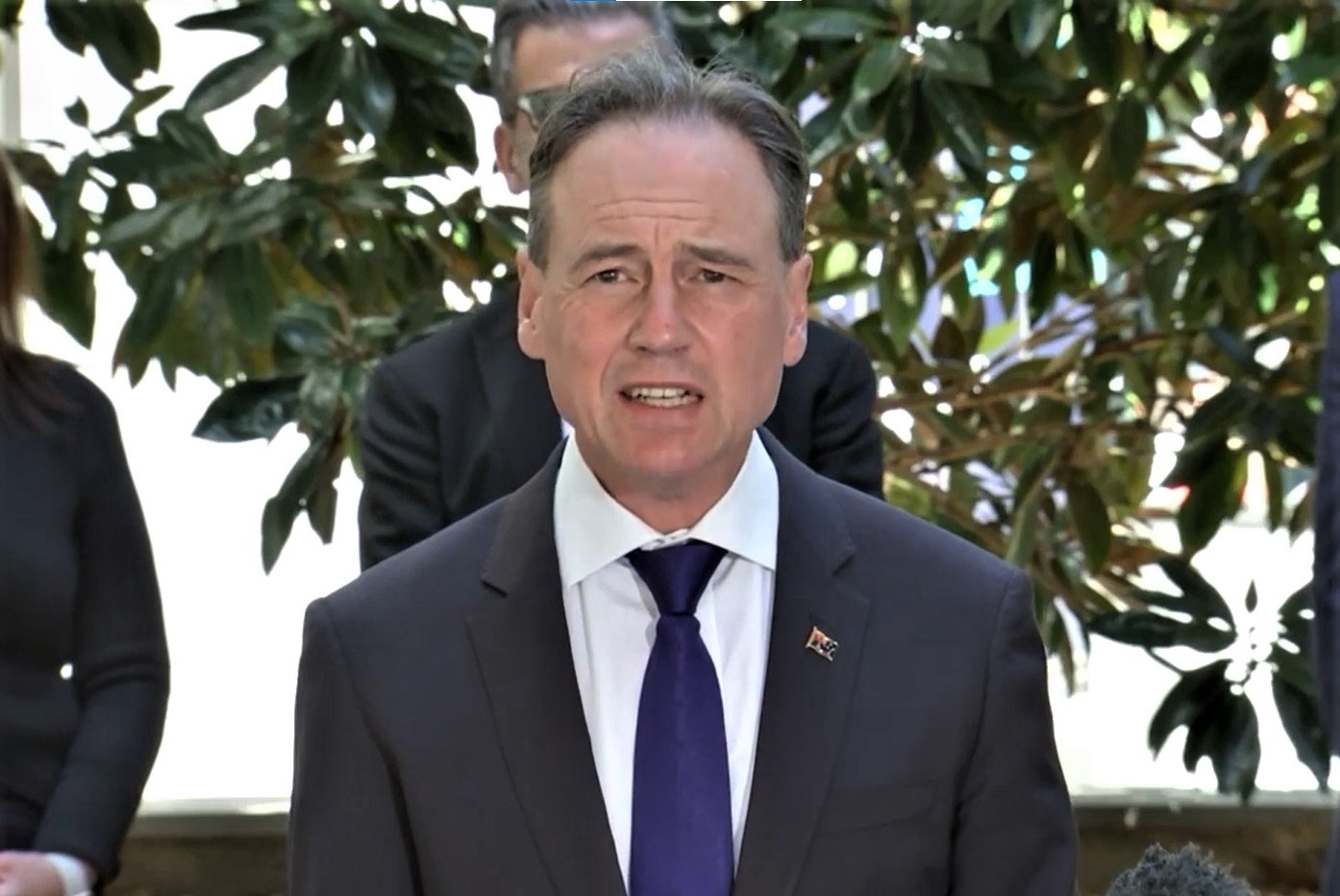Government asks ATAGI to review COVID-19 vaccine booster time frame in response to Omicron variant


Health Minister Greg Hunt has asked the Australian Technical Advisory Group on Immunisation to review health advice on vaccine boosters as uncertainty grows over Omicron, a new variant of COVID-19.
“We will… allow them to act independently and continue to follow their advice but we’re prepared with supplies,” Mr Hunt told reporters on Monday.
“We are already one of the earliest nations in the world, after Israel, to have a whole-of-nation booster program. If they recommend changes, we will follow those changes.”
To be eligible for a COVID-19 booster shot, you must be aged 18 and over and have had a second dose of a COVID-19 at least six months ago.
The Australian government will seek advice about whether the six-month timeframe for a booster shot should be shortened.
The UK has already brought forward the eligibility for booster shots to five months after the second dose of a COVID-19 vaccine in an effort to speed up the program.
The news comes as the government has temporarily banned non-citizens from nine countries in South Africa from entering Australia and required Australians who have been in those countries to undergo 14 days of quarantine.
All international arrivals in NSW and Victoria must quarantine at home for 72 hours.
Chief Medical Officer Paul Kelly said there is no evidence that COVID-19 vaccines are less effective against the Omicron variant.
“We have no evidence of that and Pfizer and Moderna can move quickly if that was to come to pass, to make a specific vaccine. That’s a major advantage,” Professor Kelly said.
Mr Hunt said he had spoken with the chief executives of Pfizer and Moderna Australia in the past 24 hours.
“I confirmed that, as our contract had already prepared for variants, that if there were a requirement for a change, they are ready and we are ready,” he said.
“And both have said, ‘Yes, that’s exactly as the contract set out’.”
Mr Hunt said there has been no change to the government’s travel advice, other than for the nine countries in southern Africa where the government has enforced level four “do not travel” advice.
“As we approach Christmas, know that out of all of the countries in the world, Australia is as well prepared as anybody.”
Australia’s national security committee will revisit the country’s scheduled reopening to students and visa holders in light of the new COVID-19 Omicron strain.
The committee will meet on Monday afternoon to look at whether Australia can reopen to double-dosed visa holders, skilled workers and international students from Wednesday as scheduled.
Federal, state and territory leaders are also expected to meet within the next 24 hours to consider Australia’s response.
Prime Minister Scott Morrison has urged calm after the strain was confirmed in two fully vaccinated people travelling from southern Africa who arrived in Sydney over the weekend.
“It is important we just calmly and carefully consider this information, work together, take the decisions that are necessary and that is exactly what everybody is doing,” he told the Seven Network on Monday.
Chief Medical Officer Paul Kelly said authorities were looking closely at what Omicron meant for viral transmission and the efficacy of vaccines.
“It does transmit from person-to-person quite readily, at least at well as the Delta virus. And so that means that it will spread,” he told ABC television.
“In terms of the vaccines, there is no solid evidence at the moment that there is a problem with that. Although we will wait for further advice and laboratory studies in coming days and weeks.”
Agriculture Minister David Littleproud urged people not to panic because the rise of new variants was inevitable.
“We are going to have to open up and we’re going to have to learn to live with this and the variants that will come,” he told the Nine Network.
“We can’t panic. We need to work through this with science, not emotion.”
Australia has shut its borders to nine southern African countries, while states have brought in new isolation rules for international arrivals.
The South African doctor who alerted authorities to the new variant emphasised the strain did not appear to cause severe illness.
A man in his 30s came to see Angelique Coetzee suffering from fatigue, body aches and pain before he and his family tested positive.
“They were not very sick, none of them were extremely sick,” Dr Coetzee said.
Labor’s NDIS spokesman Bill Shorten said the Omicron strain highlighted the need for an effective quarantine system.
“I don’t think that 72 hours is enough. And if we don’t want to have more severe restrictions, then quarantine is our front-line of defence,” he told ABC TV.
Meanwhile, Victoria on Sunday reported 1061 new COVID-19 cases and four more deaths, and NSW 185 additional infections.
There were seven new cases in the ACT and four in the Northern Territory where the remote community of Lajamanu is in lockdown until 11 December.
Nearly 87 per cent of Australians aged 16 and older are fully vaccinated.
Source: sbs.com.au




